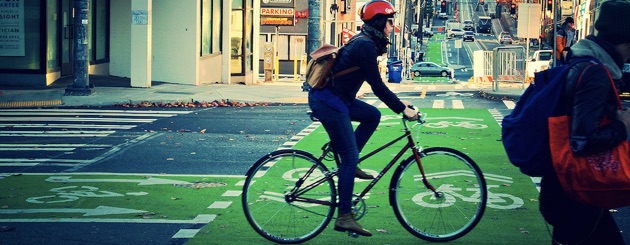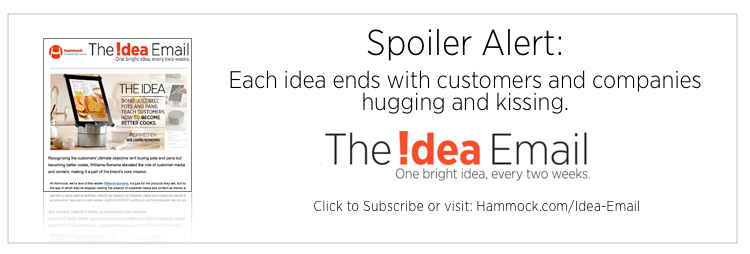
Idea: Don’t Let Words Get in the Way of What You’re Trying to Say
By Rex Hammock
We’ve written before about how in-house marketing acronyms can get lost in translation when used to communicate with customers. The same problem can occur with common words. I commute to work on a bicycle as often as possible. When I heard the story of Seattle’s “war on cars” and resulting “bikelash,” it reminded me of how ill-chosen words and phrases can lead to unintended consequences for marketers or advocates of any type. In 2009, those three little words, “war on cars,” threatened to set back the efforts of people who wanted to make bicycling in Seattle a safer and viable option for transportation. Ironically, the phrase war on cars didn’t even originate in Seattle, but in Toronto where there actually was a contentious struggle over certain bike policies. When picked up and used by some strident Seattle bicycle advocates, the “war on cars” made people take sides in a battle most citizens of Seattle hadn’t realized was being waged.
What had been a point of civic pride for most people in Seattle—all those bikes and lanes reinforced that their city was a mecca for healthy lovers of the outdoors—shifted into being perceived as a zero-sum battle where people started viewing any gain for bicycles as a setback for cars.
Instead of productive and civil conversations over whether walking or riding transportation should be improved, some people began to see the issue in terms of keeping driving from getting worse. A winning issue had become a losing one, according to People for Bikes, a bicycle industry advocacy group.
How a new vocabulary got Seattle residents back on the pathway to bike-friendliness
In 2011, a small network of bicycle advocates called the Seattle Neighborhood Greenways helped turn things around by first dropping the term “bicycle advocates” and replacing it with “neighborhood advocates.” Learning from earlier experiences in cities like Portland, Oregon, and Vancouver, British Columbia, they developed an entirely new language to stress that the disagreements weren’t between bikes and cars, or even drivers and cyclists: The disagreements were between people.
So instead of bikers or cyclists, they began saying, “people who ride bikes.” Instead of drivers or cars, they said “people who drive cars.” They dropped engineering terms or those translated from other languages, such as “cycle track,” and started using “protected bike lane.” Instead of “accident,” which implied that conscious choices like speeding aren’t involved in traffic collisions, the group simply called them “collisions.”
The result: This year, Seattle was designated as the 6th most bicycle-friendly city in the United States.
Lesson for marketers: When developing content for customers, use language that supports the way customers view themselves, not how you define them. Are they your customers? Or are they people who buy and use your products? Use the language of helpfulness, not the language of hype or good vs. bad. And one more thing: If you ever are a person driving a car on the streets of Nashville, please don’t declare war on the person who looks like me riding a bike.
Photo: Seattle Department of Transportation
The Idea Email is distributed free, once every two weeks, by Hammock, the customer media and content marketing company. Please share this with friends and colleagues who can subscribe here. We respect your privacy, and each mailing includes a one-click unsubscribe link. We typically feature one or more companies and organizations in each Idea Email. If any company we mention has a relationship to Hammock (as a current or former client, for example), we will include a disclosure.





